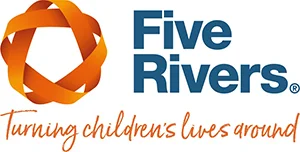It’s times like these, we reflect together to build relationships that last
Friday 01 April 2022

I have too many amazing memories from my time working in Residential Care to pick just one. Some are exhilarating; some are mischievous; all of them are fulfilling, and all are memorable.
Every day in Residential was full of fun, feeling and memories – from an adventurous trip to a castle with our Education team (which included enthusiastic re-enactments of knights riding on horses and performing Gangnam Style!); to playing ‘tag’ in the garden, smiling ear to ear, until at least one of us (usually me), was too exhausted to continue, to improvising bedtime stories about wizards and fairies, and watching the house settle into sleep.
Whilst I treasure these memories, they are not just mine, rather I share them with the children whose home I had the privilege to work in. They are two-person memories, and they don’t feel like just my stories to tell – and I hope that our children grow up to tell their own stories, full of pride, positivity, and nostalgia about their time in our care.
Instead, I want to reflect on my current role, within the Assessment & Therapy team (or A&T as we call it). My previous work in residential fuels my work in the A&T team, and there is so much I miss about working in our children’s homes (not least the diverse and delicious home-cooked dinners!). I now watch about 80% less superhero movies (at least during working hours), and do a little less vacuuming, but stepping ‘behind the curtain’ and joining the A&T team has helped me appreciate how many motivated, passionate, and deeply caring adults we have, supporting all we do.
On joining the A&T team, I was proud to learn that our assessment process doesn’t ‘diagnose’ children with ‘problems’, but instead seeks to understand each child’s unique needs and strengths and identify useful support to strengthen the relationship growing between the child and their carer.
I began my new role during the first Coronavirus lockdown, and this meant that a lot of my introductory meetings took place virtually – I met with our clinicians, foster carers, social workers, and education staff to discuss the assessments for children placed in our fostering service. It gave me the opportunity to understand the difference which psychological and psychotherapeutic support can make to children in care.
Initially, I wasn’t used to working at a desk all day (without at least one invitation to play football in the garden!), but I soon found that these spaces enabled the adult system to reflect together about how we can best support our children. By drawing on our knowledge of the effects of trauma, and the adversity many of our children have experienced, we can better understand how to help each child begin to feel safe and secure. Relationships are the keystone of our therapeutic approach, and it is when I am working with a team in these collaborative and reflective spaces that I often think…
It’s times like these, we reflect together to build relationships that last.
